Events
| Name | organizer | Where |
|---|---|---|
| MBCC “Doing Business with Mongolia seminar and Christmas Receptiom” Dec 10. 2025 London UK | MBCCI | London UK Goodman LLC |
NEWS
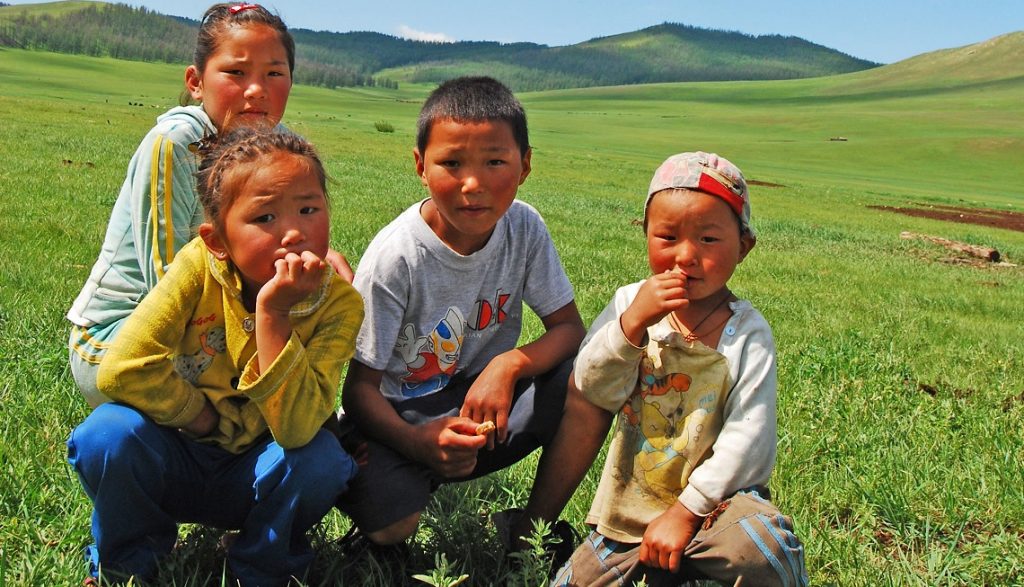
Mongolia’s population reaches 3.3 million www.news.mn
According to preliminary data, the population of Mongolia reached 3.3 million at the end of 2019 with an increase of 63.1 thousand (1.9%) on the previous year.
In 2019, a total of 80,251 Mongolian babies were born, of which 78,223 (97.5%) were born in the country and 2,028 (2.5%) were born abroad.
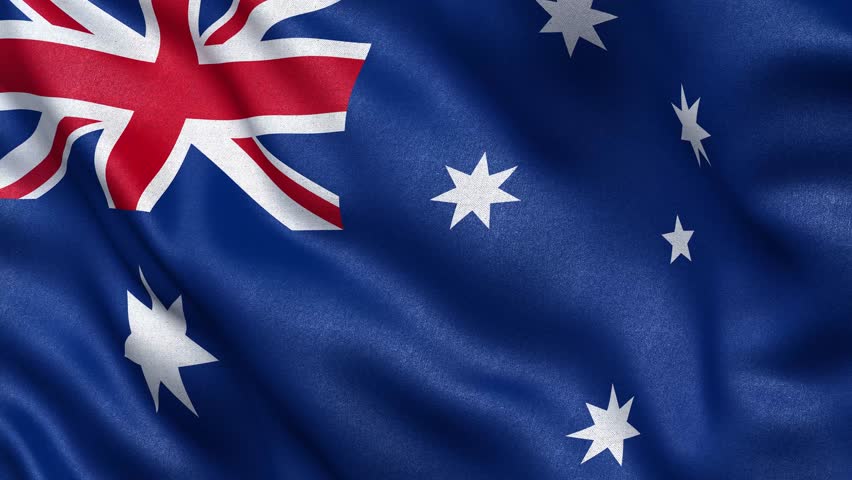
Australia to support Mongolia on the removal from “Grey List” www.akipress.com
Speaker of the Parliament of Mongolia G.Zandanshatar met Speaker of the House of Representatives of Australia Tony Smith during his attendance to the 28th Asia Pacific Parliamentary Forum which is being held in Australia, Montsame reported.
Expressing his condolences in connection with bushfires in Australian states of Queensland and New South Wales, which is causing huge damage and loss of human lives, Speaker of the Parliament G.Zandanshatar noted that the Government of Mongolia and its people living in Australia are rendering humanitarian aid. Moreover, the Speaker congratulated Mr. Tony Smith and the Parliament of Australia on organizing the 28th Asia Pacific Parliamentary Forum successfully regardless of this concern.
During the meeting, Speaker of the Parliament G.Zandanshatar and Speaker of the House of Representatives Tony Smith noted the successful development of relations between the two countries and agreed the importance of expanding cooperation in trade and economic sectors.
Speaker of the Parliament G.Zandanshatar said that Mongolia had made significant efforts and works to comply with the recommendations of Financial Action Task Force (FATF) and to be removed from the “Grey List” in a short time, and expressed his hope that Australia

Leonardo DiCaprio pays $95,000 for his own Revenant-style adventure in Mongolia www.nomadicofbluesky.com
After battling freezing temperatures for the Oscar nominated adventure film The Revenant, Leonardo DiCaprio has paid $95,000 (£66,000) for his very own real-life survivalist expedition to Mongolia.
He will travel with Johan Ernst Nilson, a Swedish explorer, who has said he will push the 41-year-old actor to his limit.
But don't worry too much for his wellbeing during the 10-day journey to Lake Hovsgol. The party will include instructors and a personal chef.
DiCaprio secured the trip with his bid at a star-studded charity auction held by the American Foundation for Aids Research last week.
Mr Nilson told the New York Post the expedition would include horse riding, hunting with falcons and eating with a nomadic family. They will sleep in a Mongolian Ger – the traditional domed structure used in Mongolia.
“When I do these trips, I take people out of their comfort zone in terms of the inner journey and get them doing things they normally wouldn’t do,” said Mr Nilson.
“If you push your limits, the reward will be much higher. It’s going to be amazing.”
The incredible filming locations of The Revenant
DiCaprio is hotly tipped to win an Oscar for his portrayal of Hugh Glass – a frontiersman left for dead after being mauled by a grizzly bear - in The Revenant.
He won a Bafta for the role on Sunday night and is now considered a 1/50 odds-on favourite by Willam Hill for his first Academy Award.
He described it as his most physically demanding role, requiring him to struggle through snow and ice, repeating the scenes day after day to get the best lighting conditions.
He said: “It was quite possibly the most difficult professional undertaking that I’ve ever had, and I think I can say the same for everyone that was involved in the movie.”

Prime Minister visits Bor-Undur fluorspar mine www.montsame.mn
Ulaanbaatar /MONTSAME/. Prime Minister U.Khurelsukh is working in some aimags these days. During his working trip to Bor-Undur soum of Khentii aimag, PM U.Khurelsukh visited the mine site of Bor – Undur Mine and Ore Dressing Plant.
Mongolrostsvetmet LLC exploits fluorspar ore from the Bor-Undur underground mine in 200 meters below ground and Khukh Del /Tuv ungent and Zuun unegt/ open pit mine. The fluorspar ore from these mines are processed in the Bor-Undur ore dressing plant and produce fluorspar acid concentrate and metallurgical concentrate as final products. The Bor-Undur concentration plant is considered to be the largest fluorspar concentrate processing plant in Mongolia, as reported by the Mongolrostsvetmet LLC.
With daily extraction capacity of around 390 tons of fluorspar ore, which totals 300 thousand of ore annually, the Bor-Undur mine plant has resumed its exploration activities in 2017, which was halted for more than two years, and made some upgrades in its technology and equipment.
The fluorspar content of the Bor-Undur mine is currently 26.76 percent and the concentration processing increases the recovery up to 90-95 percent. With current capacity, the Bor-Undur mine has the potential to operate another three years from its known deposits.
During the PM’s visit to the mine, specialists pointed out that once the technical and economic feasibility is approved of the Zuun Tsagaan Del’ fluorite deposit, whose license is held by Mongolrostsvetmet LLC, the mine exploration potential is estimated to be around 10-15 years. The deposit is located in Ikh-Khet soum of Dornogobi aimag, covers 141.8 hectares.
The Cabinet Secretariat of Government of Mongolia also reported that the profits of Bor-Undur mine totaled MNT 34 billion last year.
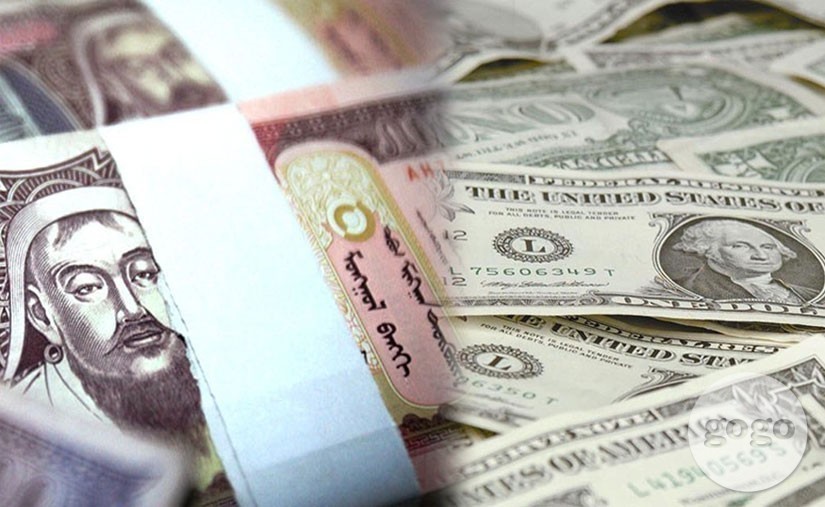
Yuan rate against tugrik mounts since last year www.zgm.mn
The CNY rate against Mongolian tugrik has been strengthening since 2019. According to the official rate announced by the Bank of Mongolia (BoM), yuan stood at MNT 398.51 on Wednesday. China has a bigger impact on Mongolia’s foreign trade. The South neighbor of Mongolia has reduced its yuan rate to decrease trade deficits and thus support exports. Particularly, China pursued monetary policies to overcome the trade dispute with the United States at a low cost.The yuan rate has relatively increased by MNT 13 over the past three months. In the meantime. Mongolia is planning to increase its trade turnover with China to USD 10 billion this year. However, if the yuan is still unstable, Mongolia may see a slight loss further. Domestic demand of China, which consumes half of the global commodity supply, had lightly weakened. At the same time, the People’s Bank of China has reduced the required amount of commercial banking stocks and expanded the cash flow to market to mitigate its economic slowdown. This has created inexpensive sources to support the business and provided up to USD 115 billion from its banking system.
...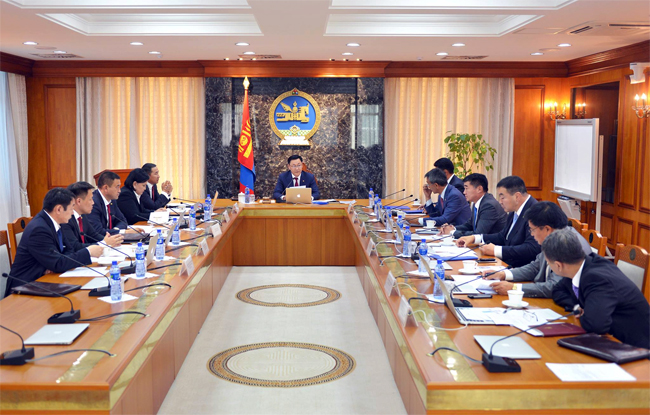
Unenbat: Government should not interfere with commercial banks’ activity www.zgm.mn
Executive Director of Mongolian Bankers Association, Unenbat Jigjid gave an interview to discuss the recent decision of the Government to repay pension loans up to MNT six billion and its effect on the economy. He also named the fiscal discipline as one of the main aspects that can define the 2020 outlook.
-According to the National Statistics Office, the volume of a hidden economy has slightly dropped from the previous year. What is the effect of the informal economy on the Mongolian economy?
-For Mongolia, the hidden economy result is relatively good, equaling about 10 percent of GDP. And it is doubtful that this volume is less than expected.
-Parliament had recently approved a bill on canceling a one-time repayment of pension loans. What is the commercial banks’ verdict on the decision?
-As for the commercial banks, they have no right to make a decision, but to serve in line with the regulations. However, as far as I’m concerned, canceling debt is an inappropriate action of the Government, interfering with the commercial banks’ transaction. It also creates a high expectation among people which can lead to negative consequences. To some extent, it is discrimination
against different social classes.
-What are the main economic challenges in 2020?
-Undoubtedly, the recent rise in mineral product prices and its export in the global market have been spurring Mongolia’s economy in recent years. It shows the country’s dependence on commodity prices. Also, the fiscal discipline, which indicates any country’s economic outlook, is likely to be violated in 2020.
-IMF had stated that the debt canceling plan is violating the 2017 bailout deal. How will the cooperation between the IMF and Mongolia proceed further?
-Well, the uncertain situation has been made following the IMF statement. It is hard for me to comment on behalf of the Mongolian side. But in terms of fiscal discipline, the potential budget cost needs to be as low as possible.
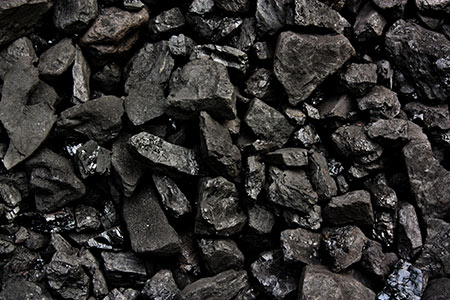
China remains top destination for Mongolia exports in 2019 www.xinhuanet.com
China remained the top export destination for Mongolia's goods in 2019, an economic statistician at the Mongolian National Statistics Office reported Thursday.
"China ranked first with a market share of 89.1 percent of Mongolia's total exports in 2019," Dorjdamba Baasan said during a news conference.
"Goods exported from Mongolia to China last year were mostly led by mining products. Specifically, coal and copper concentrates accounted for 44.4 percent and 26.4 percent of the total exports to China, respectively," he said.
Mongolia's exports amounted to 7.6 billion U.S. dollars last year, up 8.7 percent year on year, according to the statistician. Enditem

Facebook to open Mongolian ‘War Room’ www.news.mn
Social media giant Facebook will set up a ‘war room’ to counter misinformation and interference in in the upcoming Mongolian parliamentary election scheduled for June 2020.
With support from its US and Irish HQ’s, Facebook will provide 24-hour monitoring of content – including posts and advertising, using AI to identify and delete fake accounts.
Mongolia has banned candidates from distributing money and other ‘incentives’ to the voters. In addition, candidates have been banned from defaming others during the election campaign. Candidates face expulsion from nomination if these rules are proved to have been violated.
Candidates must register their social accounts with the Communications Regulatory Commission of Mongolia (CRC). The CRC is expected to actively cooperate with Facebook company during the election.
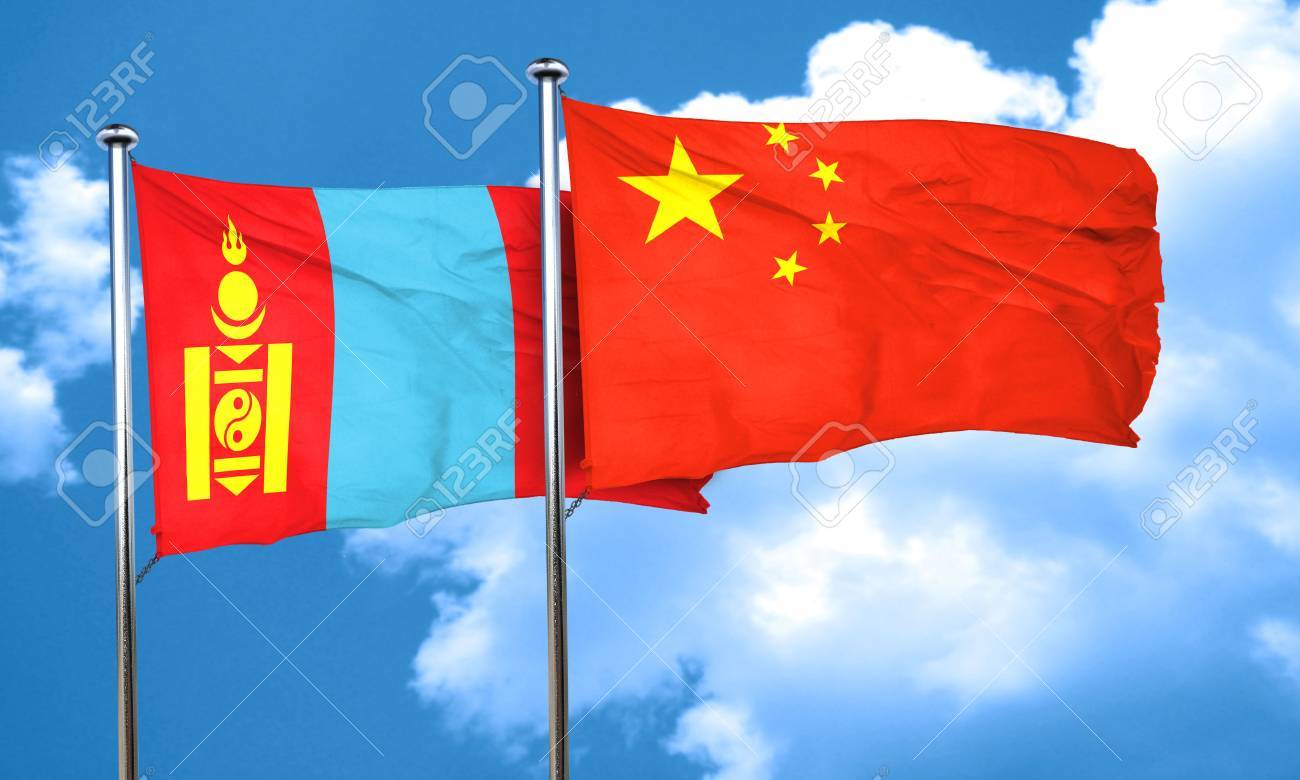
Mongolia’s Free Economic Zone on China’s doorstep www.news.mn
An investment forum entitled ‘The Connection between the Free Economic Zone and the Economic Corridor’ was held today (16 January) at the Mongolian National Chamber of Commerce and Industry. At the event, Mongolia’s policies on transport and logistics and the role and significance of the free zones were discussed. To date, Mongolia has invested a total of USD 58.8 million on construction at the site of the Zamyn-Uud Free Economic Zone (FEZ). However, so far, the Mongolian parliament has still not yet approved an intergovernmental agreement for establishing this FEZ.
Deputy Speaker U.Enkhtuvshin, said that the ‘Zamyn-Uud FEZ was first discussed in 1995, the law regulating its activity was approved in 2002 and amended in 2015. However, it has not been finalized due political uncertainty. Over the years, there have been concerns about some of China’s intentions; on one occasion Mongolian women MP’s were concerned about Beijing’s idea of to set up a gaming and casino centre in the zone and the local impact. It should be remembered, however, that China’s economic miracle, under Deng Xiaoping, the establishment of a chain of FEZ’s provided a major stimulus for growth. China has also been keen to show Mongolian specialists its mega zone in Shenzhen. The Zamyn-Uud FEZ has often been discussed in the context of establishing an Economic Corridor between Mongolia, Russia and China’.
Currently, 58 enterprises have obtained licenses to implement nearly 70 projects in Zamyn-Uud FEZ; ten of them are already under construction. The Free Economic Zones in Mongolia are expected to contribute 20-40 percent to Mongolian GDP.

Mongolian carriers become able to make transport to 16 countries www.montsame.mn
Ulaanbaatar /MONTSAME/ As a result of active work of the Ministry of Road and Transport for developing international road transport relations with European Union member states, conditions created to make transport with 16 countries, exchanging a letter of consent on conducting transportation.
The countries are the Russian Federation, China, Kazakhstan, Kyrgyzstan, Ukraine, the Democratic People’s Republic of Korea, Belarus, Latvia, Hungary, Turkey, Lithuania, Poland, Germany, Czech Republic, Georgia and Slovak.
Thanks to the agreement, Mongolian carriers have conducted 13.3 percent of total TIR transport, which is being made from European countries to Mongolia, in 2018, which was just one percent in 2016. Moreover, Intergovernmental Agreement on International Road Transport along the Asian Highway Network was established in 2016 within a program on establishment of Mongolia-China-Russia Economic Corridor. The agreement came into effect from July, 2019.
“The agreement is very significant for our land-locked country and since it is the closest way of transit transport to be conducted between Asia and Europe, it will make huge contribution to the country’s economy,” said G.Gantulga, Acting Head of Road Transport Policy Implementation and Coordination Department of the Ministry of Road and Transport.
In frames of the agreement, Mongolian carriers began performing transport by road from the Russian Federation to Tianjin border crossing passing through the territory of China. In particular, ‘Montrans auto’ LLC has successfully made the first trial transport. In addition, four vehicles of ‘Tuushin’ LLC have successfully operated transportation using TIR carnage from Irkutsk, Russia to China’s Tianjin border crossing at the beginning of January this year.
“As reflected in the Intergovernmental Agreement on International Road Transport along the Asian Highway (AH) Network, it is possible to carry out transportation along AH-3 Asian Highway network or from Ulan-Ude city of the Russian Federation to China’s Tianjin border crossing passing through Ulaanbaatar city and along AH-4 or from Novosibirsk, Russia to Honqiraf border crossing of China passing through Bayan-Ulgii and Khovd aimags” said G.Dorjpalam, Head of Transport Coordination Department of National Road Transport Center. In other words, it enabled Mongolian carriers to make transit transport along two highways that connected with Asian Highway Network. Transportation along west corridor is expected to commence at the end of 2020.
Customs accredited carriers, who have vehicle that meet the Euro-4 and higher ecological standards in accordance with the requirements in the territory of China, are fully available to carry out transport within the agreement. Aside from the intergovernmental agreement, a protocol, which was established with the Chinese Ministry of Transport on implementation of Intergovernmental Agreement between Mongolia and China on road transport, was renewed in 2019 in order to facilitate international trade and transportation. The protocol entered into force from January 1, 2020 and it allows transporting oversized, dangerous loading, which are unavailable to translocate, by truck with trailer that was registered in China.
...- «
- 1
- 2
- 3
- 4
- 5
- 6
- 7
- 8
- 9
- 10
- 11
- 12
- 13
- 14
- 15
- 16
- 17
- 18
- 19
- 20
- 21
- 22
- 23
- 24
- 25
- 26
- 27
- 28
- 29
- 30
- 31
- 32
- 33
- 34
- 35
- 36
- 37
- 38
- 39
- 40
- 41
- 42
- 43
- 44
- 45
- 46
- 47
- 48
- 49
- 50
- 51
- 52
- 53
- 54
- 55
- 56
- 57
- 58
- 59
- 60
- 61
- 62
- 63
- 64
- 65
- 66
- 67
- 68
- 69
- 70
- 71
- 72
- 73
- 74
- 75
- 76
- 77
- 78
- 79
- 80
- 81
- 82
- 83
- 84
- 85
- 86
- 87
- 88
- 89
- 90
- 91
- 92
- 93
- 94
- 95
- 96
- 97
- 98
- 99
- 100
- 101
- 102
- 103
- 104
- 105
- 106
- 107
- 108
- 109
- 110
- 111
- 112
- 113
- 114
- 115
- 116
- 117
- 118
- 119
- 120
- 121
- 122
- 123
- 124
- 125
- 126
- 127
- 128
- 129
- 130
- 131
- 132
- 133
- 134
- 135
- 136
- 137
- 138
- 139
- 140
- 141
- 142
- 143
- 144
- 145
- 146
- 147
- 148
- 149
- 150
- 151
- 152
- 153
- 154
- 155
- 156
- 157
- 158
- 159
- 160
- 161
- 162
- 163
- 164
- 165
- 166
- 167
- 168
- 169
- 170
- 171
- 172
- 173
- 174
- 175
- 176
- 177
- 178
- 179
- 180
- 181
- 182
- 183
- 184
- 185
- 186
- 187
- 188
- 189
- 190
- 191
- 192
- 193
- 194
- 195
- 196
- 197
- 198
- 199
- 200
- 201
- 202
- 203
- 204
- 205
- 206
- 207
- 208
- 209
- 210
- 211
- 212
- 213
- 214
- 215
- 216
- 217
- 218
- 219
- 220
- 221
- 222
- 223
- 224
- 225
- 226
- 227
- 228
- 229
- 230
- 231
- 232
- 233
- 234
- 235
- 236
- 237
- 238
- 239
- 240
- 241
- 242
- 243
- 244
- 245
- 246
- 247
- 248
- 249
- 250
- 251
- 252
- 253
- 254
- 255
- 256
- 257
- 258
- 259
- 260
- 261
- 262
- 263
- 264
- 265
- 266
- 267
- 268
- 269
- 270
- 271
- 272
- 273
- 274
- 275
- 276
- 277
- 278
- 279
- 280
- 281
- 282
- 283
- 284
- 285
- 286
- 287
- 288
- 289
- 290
- 291
- 292
- 293
- 294
- 295
- 296
- 297
- 298
- 299
- 300
- 301
- 302
- 303
- 304
- 305
- 306
- 307
- 308
- 309
- 310
- 311
- 312
- 313
- 314
- 315
- 316
- 317
- 318
- 319
- 320
- 321
- 322
- 323
- 324
- 325
- 326
- 327
- 328
- 329
- 330
- 331
- 332
- 333
- 334
- 335
- 336
- 337
- 338
- 339
- 340
- 341
- 342
- 343
- 344
- 345
- 346
- 347
- 348
- 349
- 350
- 351
- 352
- 353
- 354
- 355
- 356
- 357
- 358
- 359
- 360
- 361
- 362
- 363
- 364
- 365
- 366
- 367
- 368
- 369
- 370
- 371
- 372
- 373
- 374
- 375
- 376
- 377
- 378
- 379
- 380
- 381
- 382
- 383
- 384
- 385
- 386
- 387
- 388
- 389
- 390
- 391
- 392
- 393
- 394
- 395
- 396
- 397
- 398
- 399
- 400
- 401
- 402
- 403
- 404
- 405
- 406
- 407
- 408
- 409
- 410
- 411
- 412
- 413
- 414
- 415
- 416
- 417
- 418
- 419
- 420
- 421
- 422
- 423
- 424
- 425
- 426
- 427
- 428
- 429
- 430
- 431
- 432
- 433
- 434
- 435
- 436
- 437
- 438
- 439
- 440
- 441
- 442
- 443
- 444
- 445
- 446
- 447
- 448
- 449
- 450
- 451
- 452
- 453
- 454
- 455
- 456
- 457
- 458
- 459
- 460
- 461
- 462
- 463
- 464
- 465
- 466
- 467
- 468
- 469
- 470
- 471
- 472
- 473
- 474
- 475
- 476
- 477
- 478
- 479
- 480
- 481
- 482
- 483
- 484
- 485
- 486
- 487
- 488
- 489
- 490
- 491
- 492
- 493
- 494
- 495
- 496
- 497
- 498
- 499
- 500
- 501
- 502
- 503
- 504
- 505
- 506
- 507
- 508
- 509
- 510
- 511
- 512
- 513
- 514
- 515
- 516
- 517
- 518
- 519
- 520
- 521
- 522
- 523
- 524
- 525
- 526
- 527
- 528
- 529
- 530
- 531
- 532
- 533
- 534
- 535
- 536
- 537
- 538
- 539
- 540
- 541
- 542
- 543
- 544
- 545
- 546
- 547
- 548
- 549
- 550
- 551
- 552
- 553
- 554
- 555
- 556
- 557
- 558
- 559
- 560
- 561
- 562
- 563
- 564
- 565
- 566
- 567
- 568
- 569
- 570
- 571
- 572
- 573
- 574
- 575
- 576
- 577
- 578
- 579
- 580
- 581
- 582
- 583
- 584
- 585
- 586
- 587
- 588
- 589
- 590
- 591
- 592
- 593
- 594
- 595
- 596
- 597
- 598
- 599
- 600
- 601
- 602
- 603
- 604
- 605
- 606
- 607
- 608
- 609
- 610
- 611
- 612
- 613
- 614
- 615
- 616
- 617
- 618
- 619
- 620
- 621
- 622
- 623
- 624
- 625
- 626
- 627
- 628
- 629
- 630
- 631
- 632
- 633
- 634
- 635
- 636
- 637
- 638
- 639
- 640
- 641
- 642
- 643
- 644
- 645
- 646
- 647
- 648
- 649
- 650
- 651
- 652
- 653
- 654
- 655
- 656
- 657
- 658
- 659
- 660
- 661
- 662
- 663
- 664
- 665
- 666
- 667
- 668
- 669
- 670
- 671
- 672
- 673
- 674
- 675
- 676
- 677
- 678
- 679
- 680
- 681
- 682
- 683
- 684
- 685
- 686
- 687
- 688
- 689
- 690
- 691
- 692
- 693
- 694
- 695
- 696
- 697
- 698
- 699
- 700
- 701
- 702
- 703
- 704
- 705
- 706
- 707
- 708
- 709
- 710
- 711
- 712
- 713
- 714
- 715
- 716
- 717
- 718
- 719
- 720
- 721
- 722
- 723
- 724
- 725
- 726
- 727
- 728
- 729
- 730
- 731
- 732
- 733
- 734
- 735
- 736
- 737
- 738
- 739
- 740
- 741
- 742
- 743
- 744
- 745
- 746
- 747
- 748
- 749
- 750
- 751
- 752
- 753
- 754
- 755
- 756
- 757
- 758
- 759
- 760
- 761
- 762
- 763
- 764
- 765
- 766
- 767
- 768
- 769
- 770
- 771
- 772
- 773
- 774
- 775
- 776
- 777
- 778
- 779
- 780
- 781
- 782
- 783
- 784
- 785
- 786
- 787
- 788
- 789
- 790
- 791
- 792
- 793
- 794
- 795
- 796
- 797
- 798
- 799
- 800
- 801
- 802
- 803
- 804
- 805
- 806
- 807
- 808
- 809
- 810
- 811
- 812
- 813
- 814
- 815
- 816
- 817
- 818
- 819
- 820
- 821
- 822
- 823
- 824
- 825
- 826
- 827
- 828
- 829
- 830
- 831
- 832
- 833
- 834
- 835
- 836
- 837
- 838
- 839
- 840
- 841
- 842
- 843
- 844
- 845
- 846
- 847
- 848
- 849
- 850
- 851
- 852
- 853
- 854
- 855
- 856
- 857
- 858
- 859
- 860
- 861
- 862
- 863
- 864
- 865
- 866
- 867
- 868
- 869
- 870
- 871
- 872
- 873
- 874
- 875
- 876
- 877
- 878
- 879
- 880
- 881
- 882
- 883
- 884
- 885
- 886
- 887
- 888
- 889
- 890
- 891
- 892
- 893
- 894
- 895
- 896
- 897
- 898
- 899
- 900
- 901
- 902
- 903
- 904
- 905
- 906
- 907
- 908
- 909
- 910
- 911
- 912
- 913
- 914
- 915
- 916
- 917
- 918
- 919
- 920
- 921
- 922
- 923
- 924
- 925
- 926
- 927
- 928
- 929
- 930
- 931
- 932
- 933
- 934
- 935
- 936
- 937
- 938
- 939
- 940
- 941
- 942
- 943
- 944
- 945
- 946
- 947
- 948
- 949
- 950
- 951
- 952
- 953
- 954
- 955
- 956
- 957
- 958
- 959
- 960
- 961
- 962
- 963
- 964
- 965
- 966
- 967
- 968
- 969
- 970
- 971
- 972
- 973
- 974
- 975
- 976
- 977
- 978
- 979
- 980
- 981
- 982
- 983
- 984
- 985
- 986
- 987
- 988
- 989
- 990
- 991
- 992
- 993
- 994
- 995
- 996
- 997
- 998
- 999
- 1000
- 1001
- 1002
- 1003
- 1004
- 1005
- 1006
- 1007
- 1008
- 1009
- 1010
- 1011
- 1012
- 1013
- 1014
- 1015
- 1016
- 1017
- 1018
- 1019
- 1020
- 1021
- 1022
- 1023
- 1024
- 1025
- 1026
- 1027
- 1028
- 1029
- 1030
- 1031
- 1032
- 1033
- 1034
- 1035
- 1036
- 1037
- 1038
- 1039
- 1040
- 1041
- 1042
- 1043
- 1044
- 1045
- 1046
- 1047
- 1048
- 1049
- 1050
- 1051
- 1052
- 1053
- 1054
- 1055
- 1056
- 1057
- 1058
- 1059
- 1060
- 1061
- 1062
- 1063
- 1064
- 1065
- 1066
- 1067
- 1068
- 1069
- 1070
- 1071
- 1072
- 1073
- 1074
- 1075
- 1076
- 1077
- 1078
- 1079
- 1080
- 1081
- 1082
- 1083
- 1084
- 1085
- 1086
- 1087
- 1088
- 1089
- 1090
- 1091
- 1092
- 1093
- 1094
- 1095
- 1096
- 1097
- 1098
- 1099
- 1100
- 1101
- 1102
- 1103
- 1104
- 1105
- 1106
- 1107
- 1108
- 1109
- 1110
- 1111
- 1112
- 1113
- 1114
- 1115
- 1116
- 1117
- 1118
- 1119
- 1120
- 1121
- 1122
- 1123
- 1124
- 1125
- 1126
- 1127
- 1128
- 1129
- 1130
- 1131
- 1132
- 1133
- 1134
- 1135
- 1136
- 1137
- 1138
- 1139
- 1140
- 1141
- 1142
- 1143
- 1144
- 1145
- 1146
- 1147
- 1148
- 1149
- 1150
- 1151
- 1152
- 1153
- 1154
- 1155
- 1156
- 1157
- 1158
- 1159
- 1160
- 1161
- 1162
- 1163
- 1164
- 1165
- 1166
- 1167
- 1168
- 1169
- 1170
- 1171
- 1172
- 1173
- 1174
- 1175
- 1176
- 1177
- 1178
- 1179
- 1180
- 1181
- 1182
- 1183
- 1184
- 1185
- 1186
- 1187
- 1188
- 1189
- 1190
- 1191
- 1192
- 1193
- 1194
- 1195
- 1196
- 1197
- 1198
- 1199
- 1200
- 1201
- 1202
- 1203
- 1204
- 1205
- 1206
- 1207
- 1208
- 1209
- 1210
- 1211
- 1212
- 1213
- 1214
- 1215
- 1216
- 1217
- 1218
- 1219
- 1220
- 1221
- 1222
- 1223
- 1224
- 1225
- 1226
- 1227
- 1228
- 1229
- 1230
- 1231
- 1232
- 1233
- 1234
- 1235
- 1236
- 1237
- 1238
- 1239
- 1240
- 1241
- 1242
- 1243
- 1244
- 1245
- 1246
- 1247
- 1248
- 1249
- 1250
- 1251
- 1252
- 1253
- 1254
- 1255
- 1256
- 1257
- 1258
- 1259
- 1260
- 1261
- 1262
- 1263
- 1264
- 1265
- 1266
- 1267
- 1268
- 1269
- 1270
- 1271
- 1272
- 1273
- 1274
- 1275
- 1276
- 1277
- 1278
- 1279
- 1280
- 1281
- 1282
- 1283
- 1284
- 1285
- 1286
- 1287
- 1288
- 1289
- 1290
- 1291
- 1292
- 1293
- 1294
- 1295
- 1296
- 1297
- 1298
- 1299
- 1300
- 1301
- 1302
- 1303
- 1304
- 1305
- 1306
- 1307
- 1308
- 1309
- 1310
- 1311
- 1312
- 1313
- 1314
- 1315
- 1316
- 1317
- 1318
- 1319
- 1320
- 1321
- 1322
- 1323
- 1324
- 1325
- 1326
- 1327
- 1328
- 1329
- 1330
- 1331
- 1332
- 1333
- 1334
- 1335
- 1336
- 1337
- 1338
- 1339
- 1340
- 1341
- 1342
- 1343
- 1344
- 1345
- 1346
- 1347
- 1348
- 1349
- 1350
- 1351
- 1352
- 1353
- 1354
- 1355
- 1356
- 1357
- 1358
- 1359
- 1360
- 1361
- 1362
- 1363
- 1364
- 1365
- 1366
- 1367
- 1368
- 1369
- 1370
- 1371
- 1372
- 1373
- 1374
- 1375
- 1376
- 1377
- 1378
- 1379
- 1380
- 1381
- 1382
- 1383
- 1384
- 1385
- 1386
- 1387
- 1388
- 1389
- 1390
- 1391
- 1392
- 1393
- 1394
- 1395
- 1396
- 1397
- 1398
- 1399
- 1400
- 1401
- 1402
- 1403
- 1404
- 1405
- 1406
- 1407
- 1408
- 1409
- 1410
- 1411
- 1412
- 1413
- 1414
- 1415
- 1416
- 1417
- 1418
- 1419
- 1420
- 1421
- 1422
- 1423
- 1424
- 1425
- 1426
- 1427
- 1428
- 1429
- 1430
- 1431
- 1432
- 1433
- 1434
- 1435
- 1436
- 1437
- 1438
- 1439
- 1440
- 1441
- 1442
- 1443
- 1444
- 1445
- 1446
- 1447
- 1448
- 1449
- 1450
- 1451
- 1452
- 1453
- 1454
- 1455
- 1456
- 1457
- 1458
- 1459
- 1460
- 1461
- 1462
- 1463
- 1464
- 1465
- 1466
- 1467
- 1468
- 1469
- 1470
- 1471
- 1472
- 1473
- 1474
- 1475
- 1476
- 1477
- 1478
- 1479
- 1480
- 1481
- 1482
- 1483
- 1484
- 1485
- 1486
- 1487
- 1488
- 1489
- 1490
- 1491
- 1492
- 1493
- 1494
- 1495
- 1496
- 1497
- 1498
- 1499
- 1500
- 1501
- 1502
- 1503
- 1504
- 1505
- 1506
- 1507
- 1508
- 1509
- 1510
- 1511
- 1512
- 1513
- 1514
- 1515
- 1516
- 1517
- 1518
- 1519
- 1520
- 1521
- 1522
- 1523
- 1524
- 1525
- 1526
- 1527
- 1528
- 1529
- 1530
- 1531
- 1532
- 1533
- 1534
- 1535
- 1536
- 1537
- 1538
- 1539
- 1540
- 1541
- 1542
- 1543
- 1544
- 1545
- 1546
- 1547
- 1548
- 1549
- 1550
- 1551
- 1552
- 1553
- 1554
- 1555
- 1556
- 1557
- 1558
- 1559
- 1560
- 1561
- 1562
- 1563
- 1564
- 1565
- 1566
- 1567
- 1568
- 1569
- 1570
- 1571
- 1572
- 1573
- 1574
- 1575
- 1576
- 1577
- 1578
- 1579
- 1580
- 1581
- 1582
- 1583
- 1584
- 1585
- 1586
- 1587
- 1588
- 1589
- 1590
- 1591
- 1592
- 1593
- 1594
- 1595
- 1596
- 1597
- 1598
- 1599
- 1600
- 1601
- 1602
- 1603
- 1604
- 1605
- 1606
- 1607
- 1608
- 1609
- 1610
- 1611
- 1612
- 1613
- 1614
- 1615
- 1616
- 1617
- 1618
- 1619
- 1620
- 1621
- 1622
- 1623
- 1624
- 1625
- 1626
- 1627
- 1628
- 1629
- 1630
- 1631
- 1632
- 1633
- 1634
- 1635
- 1636
- 1637
- 1638
- 1639
- 1640
- 1641
- 1642
- 1643
- 1644
- 1645
- 1646
- 1647
- 1648
- 1649
- 1650
- 1651
- 1652
- 1653
- 1654
- 1655
- 1656
- 1657
- 1658
- 1659
- 1660
- 1661
- 1662
- 1663
- 1664
- 1665
- 1666
- 1667
- 1668
- 1669
- 1670
- 1671
- 1672
- 1673
- 1674
- 1675
- 1676
- 1677
- 1678
- 1679
- 1680
- 1681
- 1682
- 1683
- 1684
- 1685
- 1686
- 1687
- 1688
- 1689
- 1690
- 1691
- 1692
- 1693
- 1694
- 1695
- 1696
- 1697
- 1698
- 1699
- 1700
- 1701
- 1702
- 1703
- 1704
- 1705
- 1706
- 1707
- 1708
- 1709
- 1710
- 1711
- 1712
- 1713
- 1714
- »






